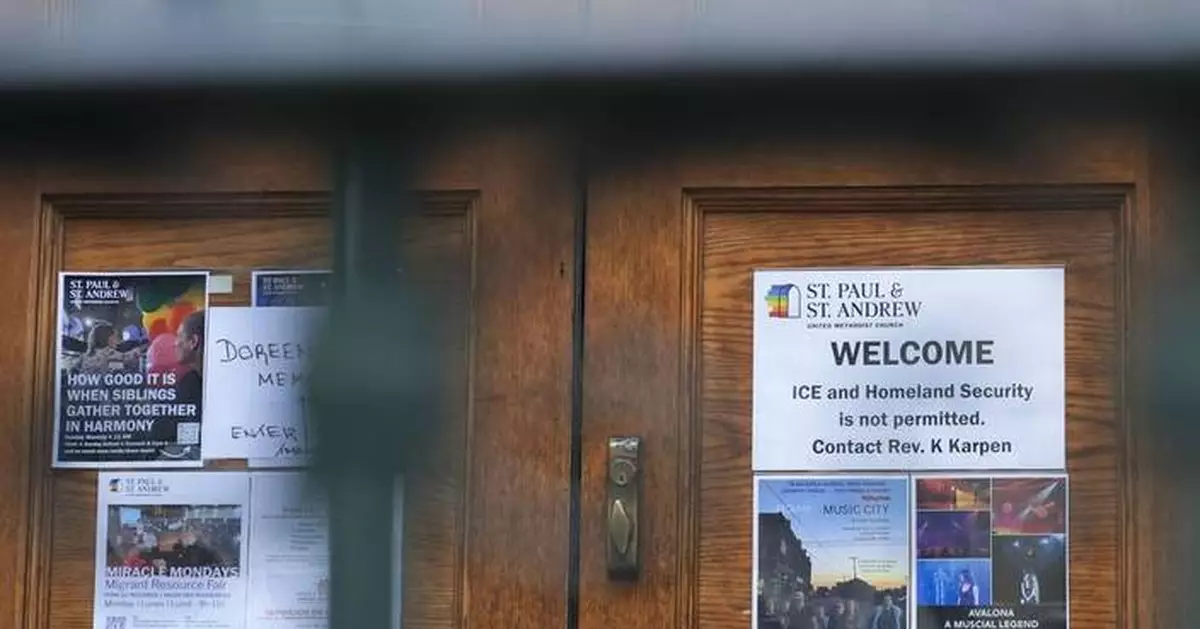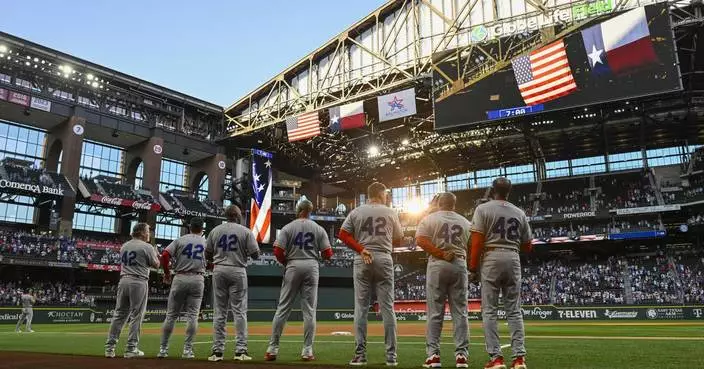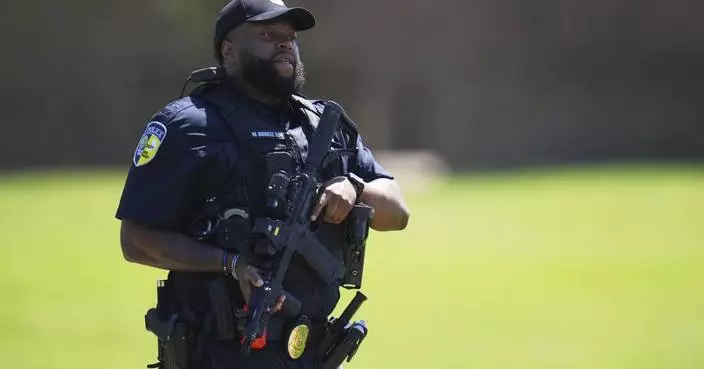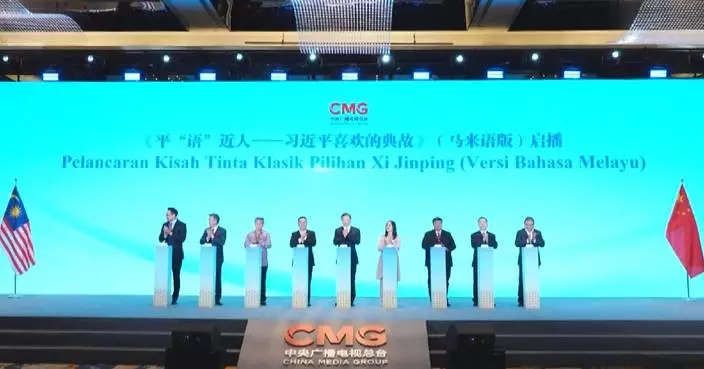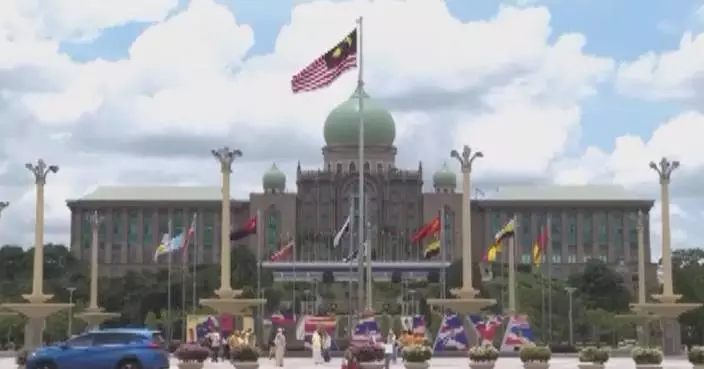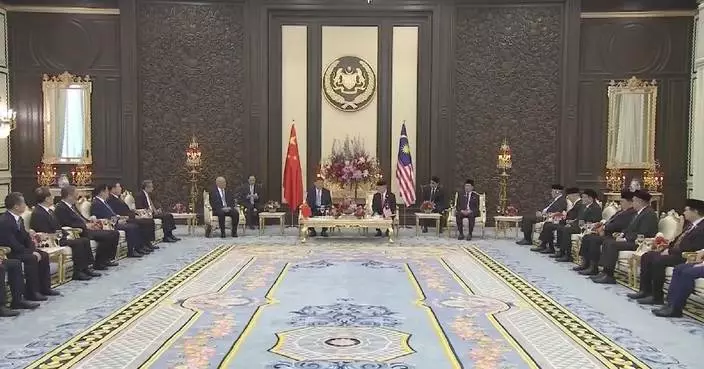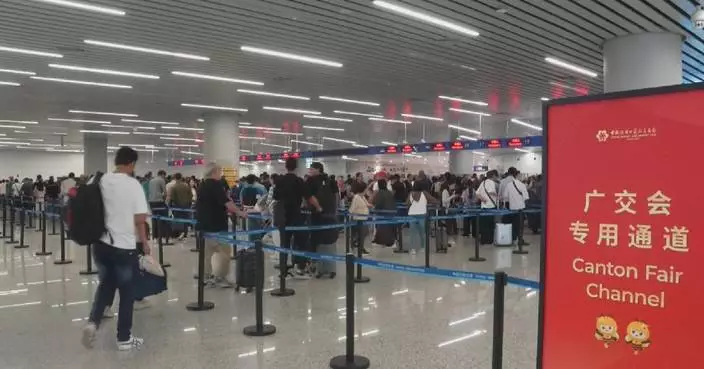WASHINGTON (AP) — A federal judge on Friday sided with the Trump administration in allowing immigration agents to conduct enforcement operations at houses of worship for now, despite a lawsuit filed by religious groups over the new policy.
U.S. District Judge Dabney Friedrich in Washington refused to grant a preliminary injunction to the plaintiffs, more than two dozen Christian and Jewish groups representing millions of Americans.
She found that the plaintiffs lack standing, or the legal right to sue, since only a handful of immigration enforcement actions have been conducted in or around churches or other houses of worship and that the evidence at this point doesn’t show “that places of worship are being singled out as special targets.”
The plaintiffs are reviewing the decision and assessing their options, said their lead counsel, Kelsi Corkran.
“We remain gravely concerned about the impacts of this policy and are committed to protecting foundational rights enshrined in the First Amendment and the Religious Freedom Restoration Act,” said Corkran, the Supreme Court Director at the Institute for Constitutional Advocacy & Protection.
The religious groups argued the policy violated the right to practice their religion. Since President Donald Trump took office in January, attendance has declined significantly, with some areas showing double-digit percentage drops, they said.
The judge, though, found that the groups had not shown their drops were definitively linked to the church policy specifically, as opposed to broader increased actions by Immigration and Customs Enforcement or other agencies.
“That evidence suggests that congregants are staying home to avoid encountering ICE in their own neighborhoods, not because churches or synagogues are locations of elevated risk,” wrote Friedrich, who was appointed by the Republican president during his first term.
That means that simply reversing the policy on houses of worship wouldn’t necessarily mean immigrants would return to church, she found.
On Jan. 20, his first day back in office, Trump’s administration rescinded a Department of Homeland Security policy limiting where migrant arrests could happen. Its new policy said field agents using “common sense” and “discretion” can conduct immigration enforcement operations at houses of worship without a supervisor’s approval.
Plaintiffs’ attorneys claimed the new Homeland Security directive departs from the government’s 30-year-old policy against staging immigration enforcement operations in “protected areas” or “sensitive locations.”
The plaintiffs did offer a handful of examples of enforcement or surveillance, according to the judge's ruling. They cited reports of an immigrant arrested at one Georgia church and of an Immigration and Customs Enforcement search at a Georgia church day care center. The plaintiffs also cited four cases of immigration officers appearing to conduct surveillance near faith-based sites, such as photographing people in line for food.
The ruling comes as Trump’s immigration crackdown hits courtrooms around the country. On Thursday alone, another judge cleared the way for the administration to require people in the country illegally to register with the government even as the Supreme Court ordered the administration to work to bring back a man mistakenly deported to prison in El Salvador.
There have been at least two other lawsuits over that sensitive locations policy. One Maryland-based judge agreed to block immigration enforcement operations for some religious faiths, including Quakers.
A judge in Colorado, though, sided with the administration in another lawsuit over the reversal of the part of the policy that had limited immigration arrests at schools.
Despite the immediate setback, the plaintiffs can continue to press their case in the lawsuit.
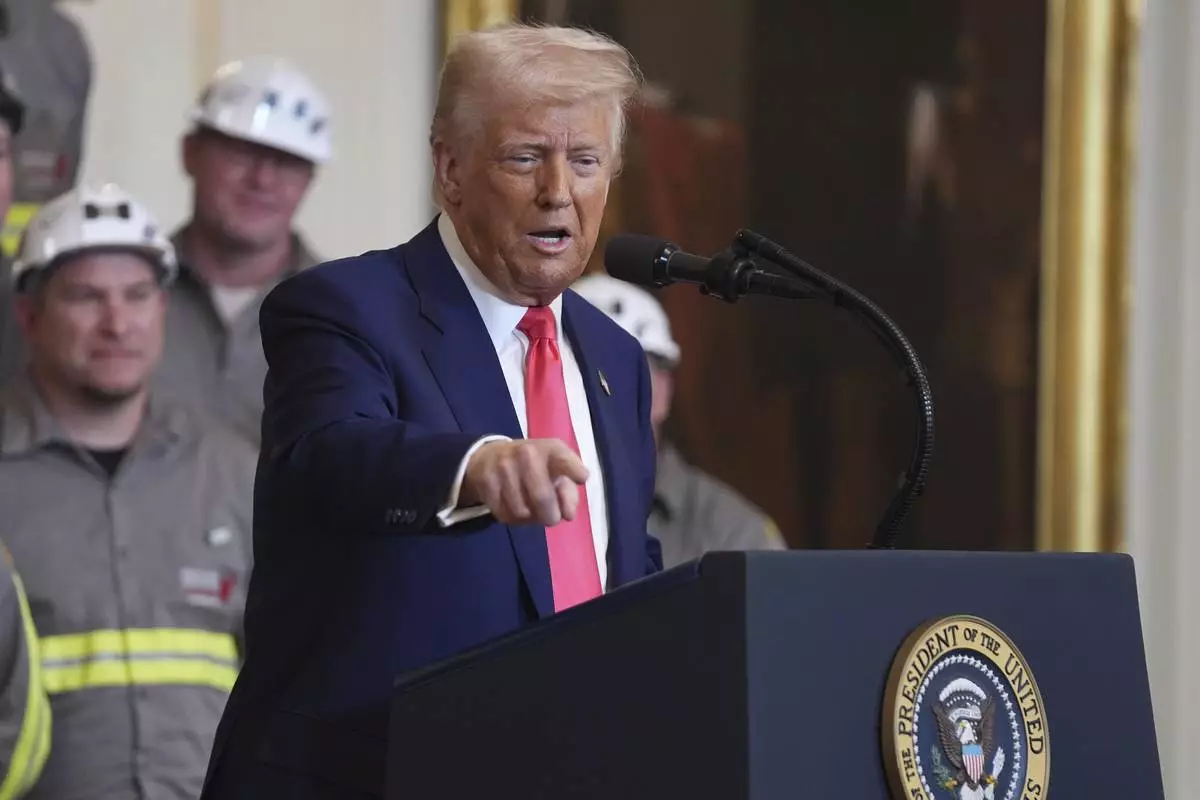
President Donald Trump speaks during an event on energy production in the East Room of the White House, Tuesday, April 8, 2025, in Washington. (AP Photo/Evan Vucci)
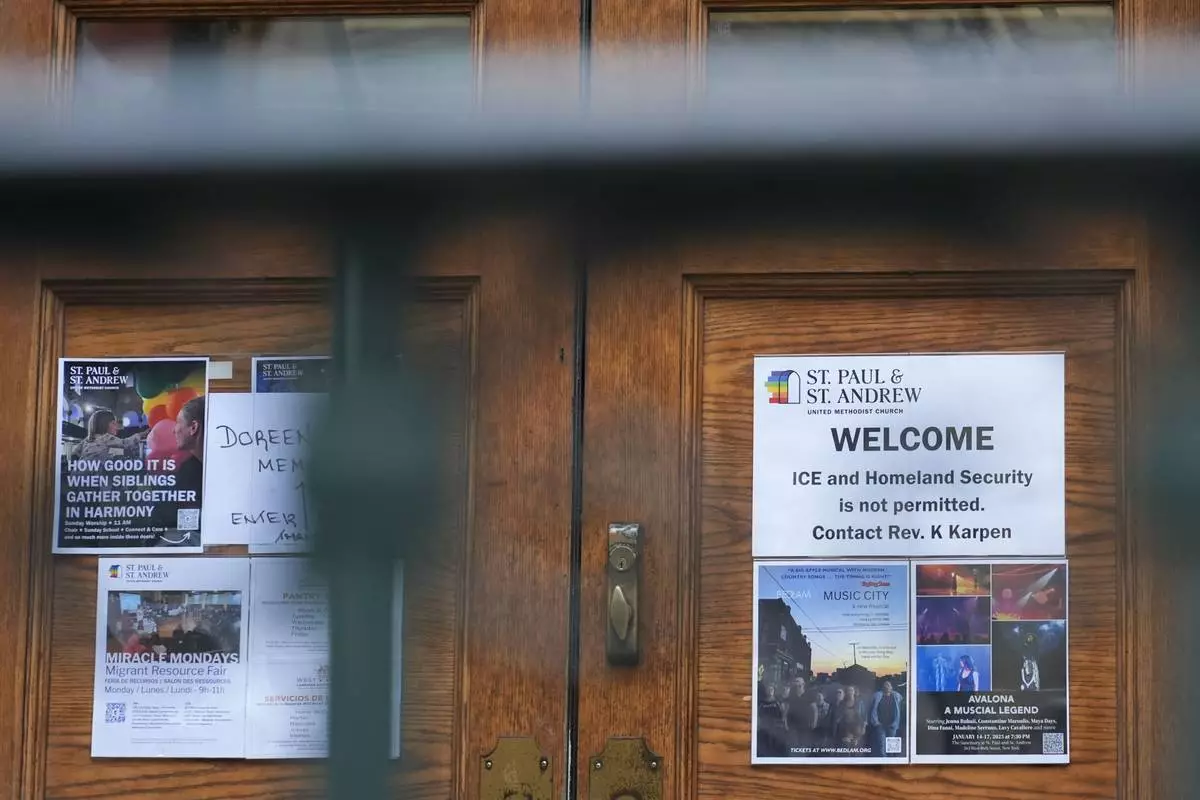
FILE - A sign that prohibits the entrance of ICE or Homeland Security is posted on a door at St. Paul and St. Andrew United Methodist Church in New York, Jan. 21, 2025. (AP Photo/Seth Wenig, File)
Fresh from a courtroom loss over The Associated Press' access to the presidency, the White House on Tuesday put forward a new media policy that sharply curtails access to Donald Trump by news agencies that serve media outlets around the world. It was the latest attempt by the new administration to control coverage of its activities.
The move would block the AP and other wire services that serve billions of readers through thousands of news outlets. It comes after a judge ruled the White House had violated the organization’s free speech by banning it because it disagreed with the outlet’s decision not to rename the Gulf of Mexico.
While outlining a new “pool coverage” policy for small spaces like the Oval Office and Air Force One, the White House also said it will ultimately give press secretary Karoline Leavitt the final say over who gets to question her boss, according to people who have seen the plan.
The White House did not return messages for comment on Tuesday evening.
A federal judge last week ruled the White House improperly punished the AP for refusing to rename the Gulf of Mexico by blocking its reporters and photographers from covering the events. U.S. District Judge Trevor N. McFadden ordered the administration to treat the AP as it does other news organizations.
A day after defying McFadden's ruling and continuing AP's ban when Trump and El Salvador President Nayib Bukele met with reporters in the Oval Office, the White House leaked a new policy to selected journalists.
For many years, the White House Correspondents Association has run the pool for the limited space events, and each time it has included reporters from the wire services AP, Reuters and Bloomberg. One print reporter was also allowed, selected on a rotating basis from more than 30 news outlets.
The White House now says it will lump the three wire services with print reporters for two slots — meaning roughly three dozen reporters will rotate for two regular slots. Wire services typically report and write stories that are used in multiple locations around the country and the planet.
Even with the rotation, the White House said Trump's press secretary “shall retain day-to-day discretion to determine composition of the pool.” The new policy says reporters will also be allowed in “irrespective of the substantive viewpoint expressed by an outlet.”
In a statement, the AP's Lauren Easton said the outlet was deeply disappointed that rather than restore the AP's access, the White House instead chose restrictions over all of the wire services.
“The wire services represent thousands of news organizations across the U.S. and the world over,” said Easton, an AP spokeswoman. "Our coverage is used by local newspapers and television stations in all 50 states to inform their communities.
“The administration's actions continue to disregard the fundamental American freedom to speak without government control or retaliation,” Easton said Tuesday night.
The independent White House Correspondents’ Association said the administration’s insistence on retaining control over who covers the president shows that it is unwilling to guarantee that it would not continue “viewpoint discrimination.”
“The government should not be able to control the independent media that covers it,” said Eugene Daniels, the association’s president.
Under Leavitt, the White House has given greater access to news outlets friendly to Trump. That was visible Tuesday, when the first reporter Leavitt addressed during a briefing asked two questions while also praising Trump policy.
At Monday's Oval Office meeting, Trump bristled at questions from CNN's Kaitlan Collins about a man deported to an El Salvador prison, at one point accusing CNN of “hating our country.” He made it a point to contrast her questions with a non-pointed one from another reporter.
Despite the occasional fireworks, Trump has made himself accessible to the media more than his predecessor, former President Joe Biden. Cramped-quarters events, particularly in the Oval Office, are some of his favorite places to talk — rendering the new access policy all the more impactful.
The new policy advanced on Tuesday did not address access for photographers. At an earlier court hearing about the AP's case, the outlet's chief White House photographer, Evan Vucci, and correspondent Zeke Miller testified about how the ban has hurt the business of a news agency built to quickly get news and images to its customers.
The dispute stems from AP’s decision not to follow the president’s executive order to rename the Gulf of Mexico, although AP style does cite Trump’s wish that it be called the Gulf of America. McFadden agreed with AP's argument that the government cannot punish the news organization for what it says — for exercising its right to free speech.
The White House has argued that press access to the president is a privilege, not a right, that it should control — much like it decides to whom Trump gives one-on-one interviews. In court papers filed last weekend, his lawyers signaled that even with McFadden's decision, the AP's days of unchallenged access to open presidential events were over.
“No other news organization in the United States receives the level of guaranteed access previously bestowed upon the AP,” the administration argued. “The AP may have grown accustomed to its favored status, but the Constitution does not require that such status endure in perpetuity.”
The administration has appealed McFadden's ruling, and is scheduled to be in an appeals court on Thursday to argue that ruling should be put on hold until the merits of the case are fully decided, perhaps by the U.S. Supreme Court.
The administration has not curtailed AP access to Leavitt's briefings over the past two months. It has blocked access to events in the East Room to White House-credentialed AP reporters — until Tuesday, when one was allowed into an event that involved the Navy football team.
David Bauder writes about media for the AP. Follow him at http://x.com/dbauder and https://bsky.app/profile/dbauder.bsky.social
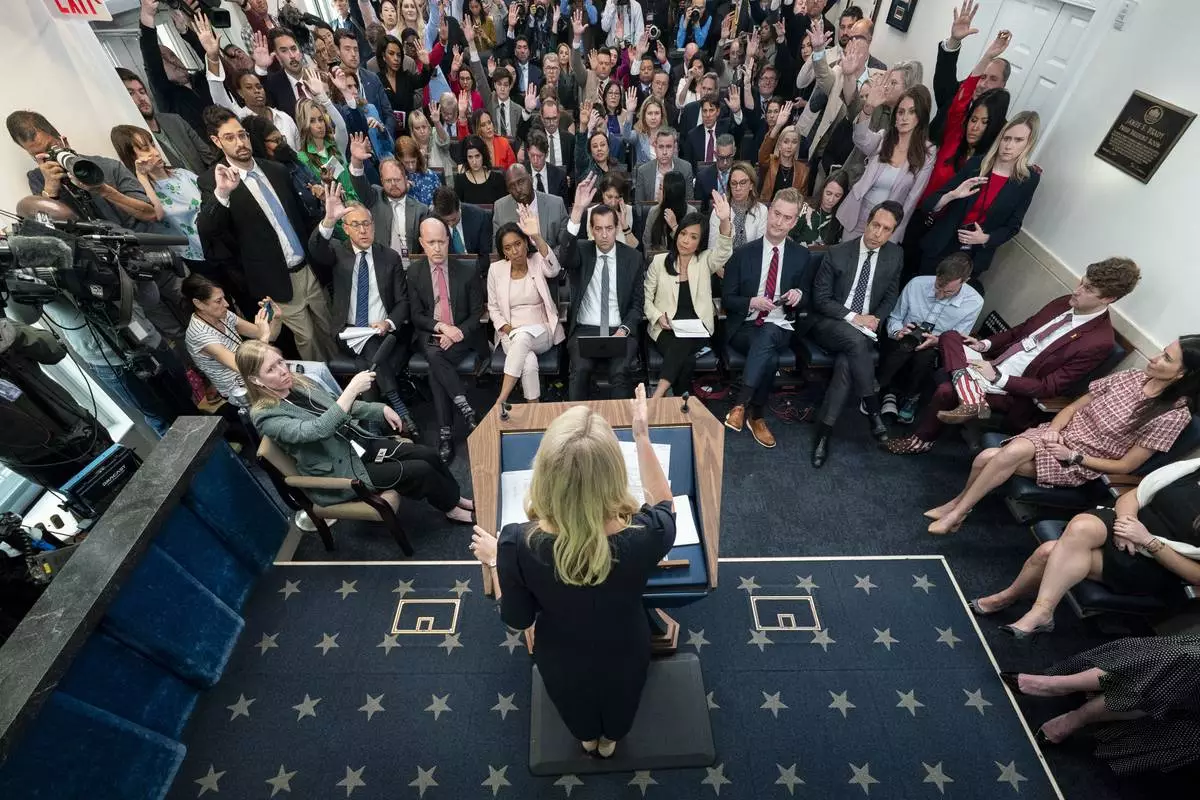
White House press secretary Karoline Leavitt speaks with reporters in the James Brady Press Briefing Room at the White House, Tuesday, April 15, 2025, in Washington. (AP Photo/Alex Brandon)




